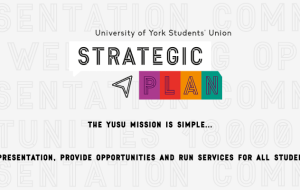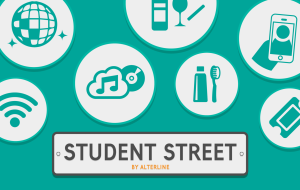In the rapidly changing landscape of the UK labour market and higher education sector, recent graduates have experience that institutions can take advantage of to provide up-to-date, first-hand advice to current and prospective students about making it on the road to career and life success. Alterline’s Dr Beth Carley discusses how alumni engagement can contribute to the strategic objectives of universities in the era of the TEF.
Meeting the TEF requirements: beyond teaching excellence
Though framed as an assessment of ‘teaching excellence’, the TEF reaches ambitiously beyond a focus on learning and academic attainment, encompassing the complex issues of retention and employment after graduation, both of which depend on many dynamic, multi-level, interacting factors. How can institutions ensure they are facilitating the academic, social and psychological integration crucial to student retention, as well as maximising the opportunity for new graduates to hit the ground at a sprint in time for the Destination of Leavers of Higher Education survey?
In this context employability has become the watchword for students, universities and government alike. Students with accumulating debt can feel intense pressure in the course of their studies to ensure that they leave with both the right grades and the right experience to find work that justifies their investment. Meanwhile those who see graduate peers struggling to find employment will inevitably question the purpose of their efforts and the value of continuing. In an Alterline survey of 17,000 students conducted in partnership with 18 students’ unions in autumn 2016, ‘helping students be more employable when they graduate’ and ‘placements/ work-based experience’ were among the three areas of concern that respondents felt it was most important for their students’ union to campaign for, out of a total of 22 items. ‘Mental health’ was another top-ranking issue, consistent with a national picture of increasing psychological distress in the student population and a spike in students with mental health difficulties dropping out of university. Institutions recognise the demands this context places upon them – the challenge is to find innovative, cost-effective ways to respond in the face of the political and economic uncertainty for the sector.
Today’s graduates: it’s not about the money
Since 2015 Alterline has been working with the Alumni Relations team at London South Bank University on three projects involving both alumni and internal stakeholders, and employing a mixed methodology of survey, interviews, diaries and video documentaries. These studies were designed to explore multiple aspects of alumni relations, including: the relationship between alumni engagement and prior student experience; staff perspectives on the role of alumni and alumni relations within the institution; and alumni life histories and the place of the university experience within their career development journey. A key finding of this research confirms what other national and international studies have shown: today’s graduates are motivated far more by the desire to make a positive difference in the world than by a hunger for money. They also want to work to live, rather than living to work, and value career satisfaction and work-life balance over advancement and earnings. However, the challenges they face in achieving these goals are very different from those of preceding generations, and with falling real wages and growing student debt, the expectation that alumni should give back to their alma mater through financial donation becomes less and less realistic. Alterline’s alumni research suggests that other aspects of alumni engagement have a much more powerful and prominent role to play in helping the higher education sector meet the challenges it now faces, by exploring and better exploiting latent alumni expertise.
Relevant, relatable advice: building alumni expertise into the student experience
Unlike academic and support staff within the university, new graduates quickly become experts in what it is like to get out and get on in the labour market right now. In this respect alumni have the potential to be an important adjunct to a university’s careers’ advice provision. What so many graduates need is guidance in the difficult first steps towards developing a career – when this is provided by someone with whom they can identify, and in whose footsteps it feels achievable to follow, it is all the more impactful. Social psychology, and more recently, behavioural economics, have demonstrated what we know to be true, intuitively – that the social norms of the peer group can have a profound impact on individual behaviour and identity. Our research suggests that alumni can be significant vehicles for information and influence in the student population, not just because of what they know, but who they are. Young people recognise the currency of the experience of someone who has grown up in their time and come from their world, as being distinct from the perspective of older adults embedded in the institution of the university.
Recent graduates are also able to call on their recollection of their own university experience, which can serve as a guide, both to students and to staff, on what helps and hinders students in completing their degree. Hearing from someone else who struggled and doubted whether they would succeed at university – or questioned if it was even worth their while to try – can make the difference between a student staying or leaving. Learning first-hand about help-seeking behaviours can make an enormous difference to those struggling under-the-radar, whether they are a mature student living in their home town, managing a part-time job and dependents, or an 18-year-old living far away from parents, siblings and childhood friends for the first time.
Telling ordinary stories that count
Every university has its super-star graduates, who go on to greatness and whose glory reflects favourably on their alma mater. These individuals show what is possible and can be a source of inspiration and leadership. However, the very fact of being exceptional means few can expect to travel the same trajectory. Many current and prospective students want to know what to hope for from their degree, and how best to achieve it, when they conform to the rule and do not expect to be the exception. Those more likely not to complete their degree, or to have particular difficulty finding employment after graduation, are also those who are most likely to benefit from alumni expertise on surviving university and entering the job market. The kinds of alumni experiences which may be of most interest and use for such students are those that, though unique, are not extraordinary. Yet these ordinary stories may be the hardest to access and hear, since those who could tell them are unlikely to recognise their power and raise a hand to speak.
Asking an alumnus to share their experiences inevitably means making a request for a donation of time and effort. However, if the value of their contribution is made sufficiently clear, and if it is framed as a gift to others like themselves, rather than as simply a donation to an expensively-accessed educational institution, it can tap into the pro-social inclinations of their generation and give additional validation to their achievement, in terms they might never have fully considered before. For those with the time and inclination, joining the dots between their former and current selves might mean becoming a mentor or offering placement opportunities in their field for current students; for others, simply telling their story might offer hope at a critical moment to those who are struggling with the demands of university life. When such stories are turned into videographic accounts, their reach and impact can be extensive and enduring.
Measuring alumni engagement: counting the impact of stories told
What the above aims to propose is a greater role for alumni relations in helping universities to achieve their goals around retention and employability, in line with the demands of the TEF. However, engagement takes investment and its impact needs to be demonstrable. Our research suggests that the benefits can be tangible, but that, in order to be realised, they must be understood on students’ own terms – that is, in terms of the expertise in the ‘now’ of being a student or new graduate, which only someone in the midst of that experience can define. For it is too easy for internal stakeholders to assume that they know what students need, want and fear; indeed, alumni reflections on their own university careers can give voice to needs students do not even recognise they have, until they hear them communicated by someone else who has walked the same path. The careful, in-depth exploration of the impact of alumni stories on current students has the potential to be the starting point for the development of a new set of sector-wide metrics that can capture and do justice to the impact of alumni engagement, as well as opening up the possibility of a fresh conversation about the focus and effectiveness of higher education for the many, as a new decade approaches.












